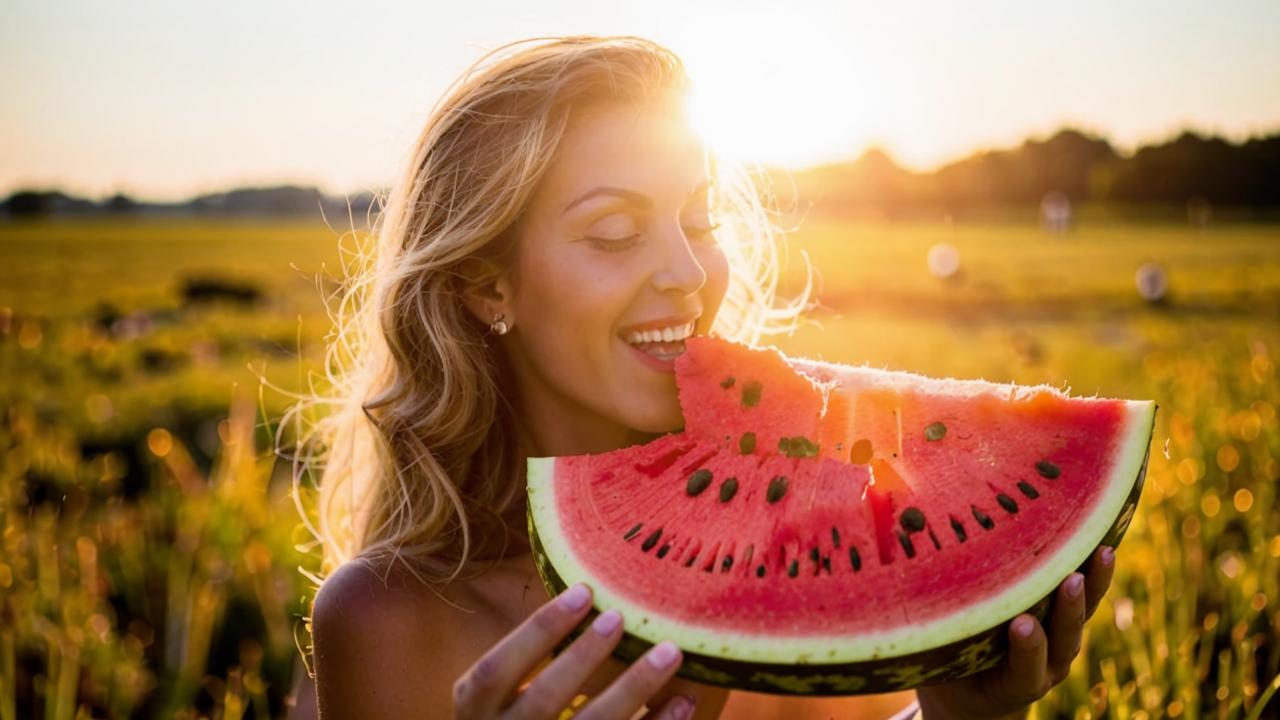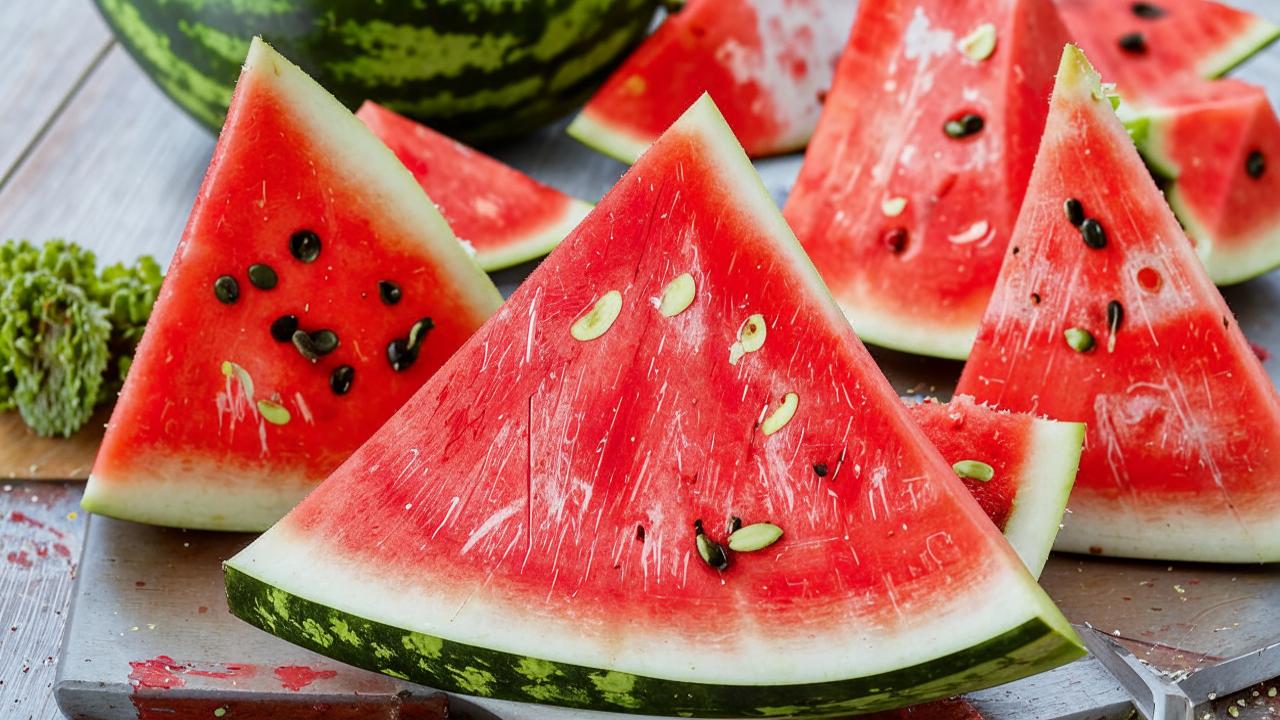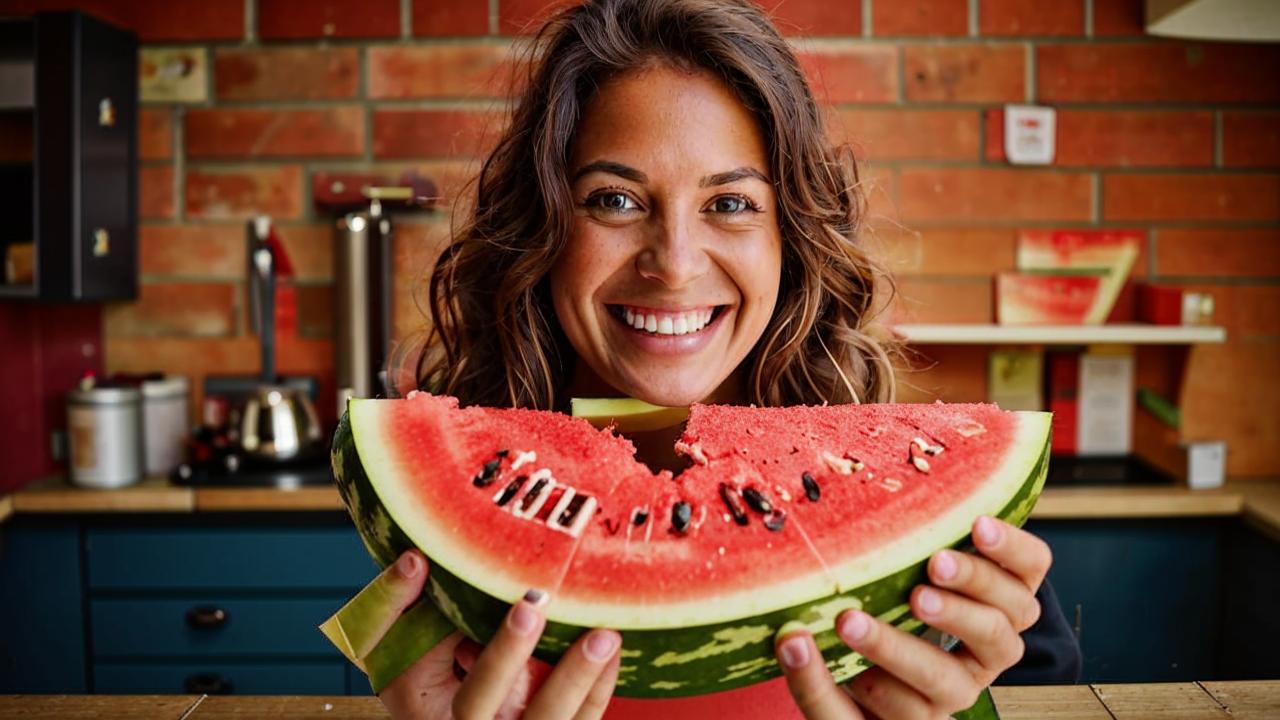All watermelon lovers can be divided into two groups: those who carefully select the seeds from the juicy pulp, and those who eat indiscriminately, swallowing the seeds as well. So what is the right way: to eat with the seeds or spit them out?
What shall we tell you about?
Composition of watermelon
Watermelon is not only a delicious and refreshing summer berry, but also a source of many useful substances. Its composition includes:
- water – watermelon is 92% water, which makes it a great choice on hot days;
- vitamins – the berry is particularly rich in vitamins C and A, and also contains B1, B5, B6 and others;
- minerals – the summer sweetness contains silicon, cobalt, potassium, magnesium, iron, copper, calcium and others;
- antioxidants – lycopene, which gives watermelon its red color, is a powerful antioxidant;
- amino acids – watermelon contains citrulline, an amino acid that helps improve circulation and reduce fatigue.
There are only 27 calories in 100 grams of watermelon – an ideal product for weight watchers.

The amount of seeds in watermelon varies depending on the size of the watermelon and the variety. A traditional medium-sized berry can have anywhere from 200 to 800 seeds. There are also varieties where there are only about 40 seeds or they are not noticeable at all when consumed.
Benefits and harms of watermelon seeds
Despite their small size, watermelon seeds have a high nutritional value. They are rich in iron, folic acid, niacin, magnesium, and an antioxidant called lycopene.
To get the benefits of eating the seeds, they need to be chewed to damage the outer shell. The seeds can be made into flour or roasted in the oven and eaten like familiar seeds by cracking the shells.

Caution when eating watermelon seeds should be shown to people with a sensitive digestive system. They may experience discomfort or constipation from excessive consumption of seeds.
Is it possible to eat watermelon together with the seeds?

doctor-gastroenterologist, therapist, nutritionist of the Medical On Group clinic in Balashikha city
“Each of us at least once swallowed watermelon seeds and at the same time wondered how safe it is for health.”
From the consumption of whole watermelon seeds to expect significant harm or benefit is not necessary. The fact is that they transit the gastrointestinal tract and are eliminated with feces in an unchanged form.
Episodic consumption of small amounts of watermelon seeds is not dangerous. However, in persons with gastrointestinal disorders, such as in such a condition as irritable bowel syndrome, the use of watermelon itself, and together with the seeds, can cause marked bloating, abdominal pain and even loose stools up to diarrhea.
Symptoms are minimal with small amounts of the product consumed.

Difficulties in digesting watermelon seeds lie in their shell, which does not succumb to the digestive enzymes of our intestines. However, if they are chewed, some of the trace elements in them can be digested.
Given the wide variety of tasty and healthy nuts and seeds, alternatives to watermelon seeds are not difficult to find in other fruits with more pliable outer shells and more appealing flavors.
Thus, accidentally eating watermelon with a small amount of seeds is unlikely to cause any harm, as long as it is accidentally eaten seeds in small amounts. However, if you suffer from gastrointestinal diseases or experience discomfort after eating watermelon in this form, it is better not to eat seeds if possible or to prefer watermelon varieties with a low content of seeds.





